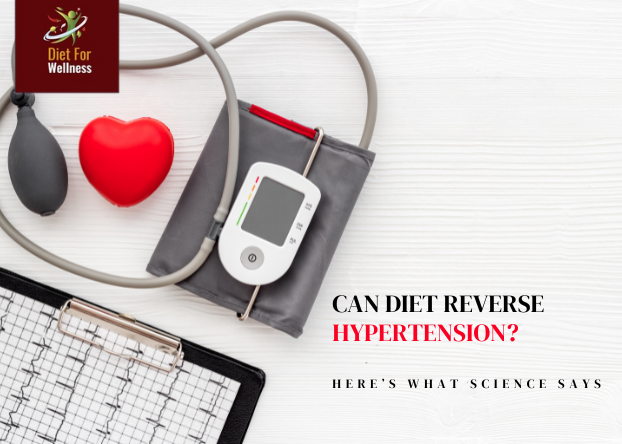Can Diet Reverse Hypertension? Here’s What Science Says

High blood pressure, or hypertension, is often dubbed the “silent killer” because it can lead to severe health complications like heart disease, stroke, and kidney failure without obvious symptoms. While medication is a common approach to managing hypertension, an increasing body of research suggests that dietary changes can not only control but potentially reverse high blood pressure.
Hypertension and Its Causes
Hypertension occurs when the force of blood against the artery walls is too high. This condition can result from genetic factors, sedentary lifestyles, poor dietary choices, stress, and underlying health conditions. Traditional medical treatments include prescription drugs such as beta-blockers, diuretics, and ACE inhibitors. However, many individuals seek natural ways to lower their blood pressure, with diet being a key component.
The Role of Diet in Managing and Reversing Hypertension
Scientific studies have consistently demonstrated that dietary modifications can have a profound impact on blood pressure levels. There are a number of dietary approaches backed by research that help manage the condition, some of which are mentioned below-
- The DASH Diet
The Dietary Approaches to Stop Hypertension or DASH diet is specifically designed to deal with high blood pressure. It emphasizes on
- Increased consumption of whole grains, fruits, vegetables, and lean proteins.
- Reduced intake of saturated fats, red meat, and processed foods.
- Increased intake of potassium, magnesium, and calcium, which help regulate blood pressure.
Research shows that adhering to the DASH diet can lower systolic blood pressure by up to 11 mmHg and diastolic pressure by up to 5 mmHg.
- Reducing Sodium Intake
Excess sodium is a major contributor to hypertension. The American Heart Association recommends limiting your sodium intake to not more than 1,500 mg per day. Studies indicate that lowering sodium consumption can reduce blood pressure significantly, particularly in salt-sensitive individuals.
- Increasing Potassium-Rich Foods
Potassium helps in balancing sodium levels and relax blood vessel walls. Foods rich in potassium include
- Bananas
- Spinach
- Sweet potatoes
- Beans
- Avocados
- Incorporating Heart-Healthy Fats
Healthy fats from sources like olive oil, nuts, seeds, and fatty fish provide anti-inflammatory benefits that support heart health and improve blood vessel function.
- Reducing Sugar and Processed Foods
High sugar intake is linked to obesity and insulin resistance, both of which contribute to hypertension. Processed foods often contain hidden sodium, unhealthy fats, and added sugars, making them a major risk factor.
- The Benefits of Plant-Based Diets
Plant-based diets, such as the Mediterranean diet, have been shown to reduce hypertension due to their high fiber content, antioxidants, and healthy fats. Studies indicate that vegetarians and vegans tend to have lower blood pressure than meat-eaters.
Additional Lifestyle Factors That Support a Healthy Blood Pressure
While diet plays a crucial role in reversing hypertension, it works best when combined with other lifestyle changes such as:
- Regular Physical Activity– Exercise improves circulation and strengthens the heart, leading to lower blood pressure.
- Stress Management– Chronic stress can elevate blood pressure. Mindfulness, yoga, and deep breathing exercises help mitigate stress.
- Adequate Sleep– Poor sleep patterns are associated with higher blood pressure levels.
- Limiting Alcohol and Caffeine– Excessive alcohol and caffeine intake can contribute to spikes in blood pressure.
Can Diet Alone Reverse Hypertension?
The answer depends on the individual’s condition and commitment to lifestyle changes. In mild to moderate cases of hypertension, adopting a heart-healthy diet can significantly lower and even normalize blood pressure. For those with severe hypertension, dietary changes can be a powerful complement to medication, potentially reducing the need for pharmaceuticals over time.
Conclusion
Science supports the idea that diet can play an important role in managing and even reversing hypertension. While dietary changes may not eliminate hypertension overnight, they provide a sustainable and natural approach to reducing blood pressure and enhancing overall well-being.
If you’re dealing with hypertension, consulting a healthcare provider before making significant dietary changes is always recommended. A personalized nutrition plan can ensure the best possible outcome for your heart health.
